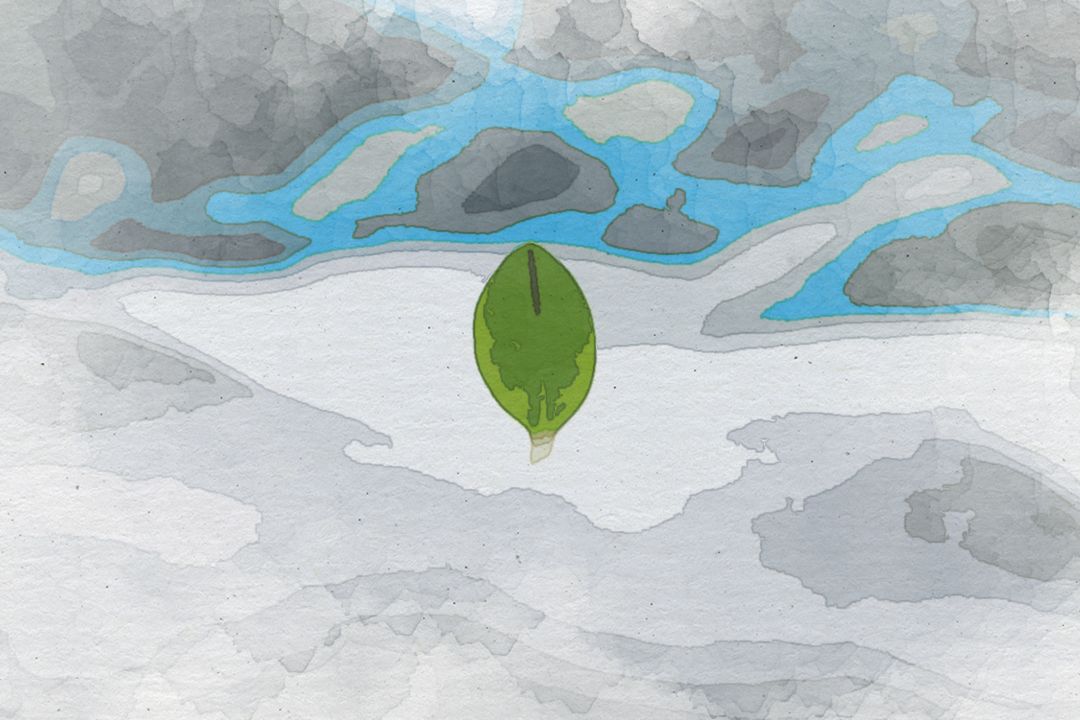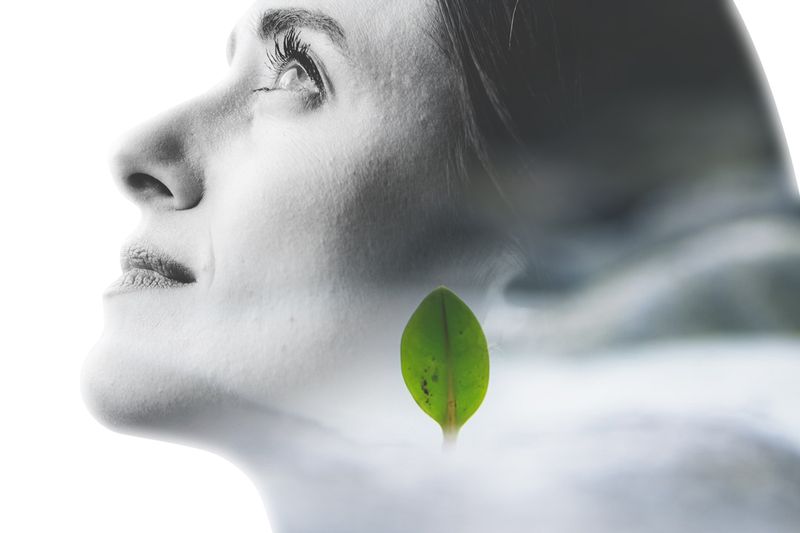Just keep telling that to yourself

I am not a Nihilist But I Don't Believe in Hope and That's Life
The coastal village where Adrian lived thrived on its simplicity, on the predictability of seasons and the certainty of the tides. In this place, where life was measured by the sun’s arc and the moon’s pull, a single leaf’s defiance became an emblem for an idea that had long been dormant in the hearts of its inhabitants:
While there's life, there's hope.
— Cicero (106-43 BC)
Adrian would often find himself repeating Cicero’s wods, rolling them around in his mind like pebbles smoothed by the sea. The ancient wisdom seemed to gently prod at his practiced stoicism. The leaf, with its presence amidst the rocks, became a daily reminder that perhaps life itself was the very embodiment of hope—not as a sentiment, but as an existential truth.
In the village, he wasn’t the only one who had noticed the leaf. A young artist, Elara, had taken to painting it, infusing her canvases with the vivid greens and grays that framed their world. She spoke often of hope, not as something fragile or easily shattered, but as an inherent force, as unstoppable and natural as the tide itself. Through her eyes, Adrian began to see the connection between existence and hope, a dance that continued irrespective of human interference.
And as Adrian allowed himself to consider hope not as an abstract concept but as an intrinsic part of the life around him, his observations began to take on new meaning. His notes were no longer just data; they were the chronicling of life’s persistence, the recording of an ever-hopeful narrative written by nature itself.
In his youth, Adrian had been a firm believer in the power of the intellect, the capacity of the human mind to discern, to discover, and to understand. He had lived by the credo that with enough knowledge, anything was possible. Now, as he aged, he found a kindred spirit in the words of Goethe:
Magic is believing in yourself, if you can do that, you can make anything happen.
— Johann Wolfgang von Goethe (1749-1832)
It was during a particular sunset, the sky a blaze of colors reflecting in the frothy waves, that the true depth of Goethe’s assertion struck him. Magic wasn’t the conjurings of fantasy; it was the result of unwavering belief in one's own abilities. Adrian realized that this belief was mirrored in nature’s resilience—the leaf’s survival against the odds was its own kind of magic.
He began to see the evidence of this magic in the villagers, in their daily triumphs against the harshness of their environment, in their shared stories and laughter despite the weight of their labors. He saw it in Elara’s art, how she captured the essence of their world with bold strokes and bright hues, creating beauty from the mundane.
Adrian's work, too, had its own alchemy. Each discovery, each piece of understanding he contributed to the world, was a result of his belief in the quest for knowledge. This belief had driven him to probe the mysteries of the sea, to peel back the layers of its secrets. The magic was there—in the data that revealed new species, in the patterns that explained migration, in the solutions that conserved ecosystems.
The belief in oneself, Adrian now understood, was the catalyst for transformation, both personal and global. It was the force that propelled the villagers to continue their lineage, to innovate, to protect their home. It was the essence of magic, real and potent, and it was woven into the fabric of their lives, just as it was woven into the tenacity of the leaf upon the cliff.
Adrian had always seen himself as a man of reason, his life dictated by the logic of science and the pursuit of truth. However, the persistence of the single leaf amidst the rocks had stirred something within him, revealing a complex tapestry of thought and emotion. It reminded him of the importance of daring to understand, to reason, and to act, as echoed in the passionate words of Lord Byron:
Those who will not reason, are bigots, those who cannot, are fools, and those who dare not, are slaves.
— Lord Byron (1788-1824)
In his younger days, Adrian might have used this quote to champion the cause of science over superstition, of knowledge over ignorance. But now, it took on a broader meaning. Reason was not just the application of logic; it was the courage to challenge one's own beliefs, to remain open to the whispers of hope in a world that often seemed bereft of it.
Adrian saw the truth of Byron’s words in the villagers' eyes, in their reluctance to dream of a better future, in their acceptance of the status quo. It was a refusal to reason out of fear, a bondage to the known and the safe. But it was also present in the stubborn prejudice against anything that dared to disrupt the familiar rhythm of their lives—like Elara’s vibrant paintings, or Adrian’s increasingly passionate conservation efforts.
With the leaf as his silent ally, Adrian set about his work with renewed vigor, determined to break the chains of complacency. He organized gatherings, shared his knowledge, and invited debates on the future of their environment. Slowly, the village began to awaken from its slumber, to reason, to dream, to dare.
In his quest, Adrian had become the embodiment of Byron's ideal, a man who dared to reason, to challenge, and to refuse the mantle of slave. He had become an agent of change, a believer in the possible, a beacon of hope in a place that had forgotten what it looked like. And throughout it all, the leaf remained, a quiet testament to the power of endurance, the strength of hope, and the magic of believing in oneself.

The planksip Writers' Cooperative is proud to sponsor an exciting article rewriting competition where you can win part of over $750,000 in available prize money.
Figures of Speech Collection Personified
Our editorial instructions for your contest submission are simple: incorporate the quotes and imagery from the above article into your submission.
What emerges is entirely up to you!
Winners receive $500 per winning entry multiplied by the article's featured quotes. Our largest prize is $8,000 for rewriting the following article;

At planksip, we believe in changing the way people engage—at least, that's the Idea (ἰδέα). By becoming a member of our thought-provoking community, you'll have the chance to win incredible prizes and access our extensive network of media outlets, which will amplify your voice as a thought leader. Your membership truly matters!


